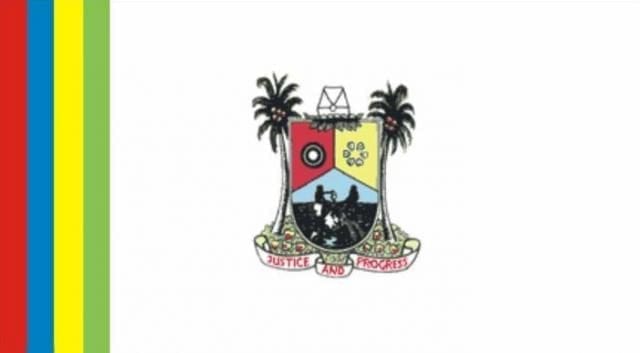In a significant push towards climate resilience and sustainable urban growth, the Lagos State Government (LASG) has teamed up with the Chinese government to launch a low-carbon development initiative aimed at drastically reducing emissions and positioning Lagos as a model for green cities in Africa. The project, which will be piloted in the Lekki area, is part of a broader plan to address the environmental impact of rapid urbanisation and industrialisation in Nigeria’s most populous city.
At the core of this collaboration is the Lekki Low-Carbon Demonstration Zone, an ambitious effort designed to showcase practical solutions that can help Lagos transition to a cleaner, greener economy. The initiative is the product of a partnership between LASG and China under the China-Nigeria Low-Carbon Demonstration Initiative, with technical input from environmental experts and policy advisors from both countries.

Speaking at a recent stakeholders’ meeting in Alausa, the Lagos State Commissioner for the Environment and Water Resources, Tokunbo Wahab, emphasised that the project is aligned with the state’s commitment to meeting its emission reduction targets under the Paris Agreement. He explained that the project would address pressing urban challenges, including poor air quality, waste management, and energy inefficiency, which have become more severe due to the city’s growing population and expanding industrial base.
According to Wahab, the Lekki pilot zone will integrate renewable energy solutions, promote energy-efficient buildings, enhance waste recycling, and support sustainable transportation systems. He noted that the initiative would also create job opportunities in the emerging green economy, while helping residents adopt cleaner technologies for daily living.
One of the key goals is to significantly lower Lagos’s carbon footprint by reducing dependence on fossil fuels for power and transport. Experts believe that if properly implemented, the demonstration zone could serve as a blueprint for scaling similar low-carbon districts across Lagos and other Nigerian cities facing comparable climate risks.
Representing the Chinese delegation, the Director of the China National Development and Reform Commission’s Climate Department, Wang Lei, expressed optimism that the partnership would produce practical results for both parties. He stated that China’s experience in developing green cities and low-carbon industrial parks would be invaluable in helping Lagos navigate its energy transition without compromising economic growth.
The initiative is a direct outcome of an earlier memorandum of understanding signed between Nigeria and China under the Africa-China Green Development Partnership. The agreement covers technology transfer, joint research, and financing for clean energy projects. For Lagos, this collaboration offers access to proven low-carbon technologies and the expertise to adapt them to local realities.
The National Council on Climate Change, which is Nigeria’s top climate policy body, has welcomed the project, describing it as a step forward in achieving the country’s climate action targets. Its Director, Michael Ivenso, said that the Lekki pilot zone aligns with Nigeria’s Nationally Determined Contributions (NDCs), which include commitments to reduce greenhouse gas emissions by 20 percent unconditionally and 47 percent conditionally by 2030.
He explained that the partnership would help build investor confidence in Nigeria’s climate projects by demonstrating that sub-national governments like Lagos are ready to take bold action. He also called on the private sector to get involved by investing in clean technologies, green buildings, and sustainable infrastructure that will be required to expand the project beyond Lekki.
Environmentalists have welcomed the development but stress that the success of the project will depend on strong policy enforcement and genuine community engagement. Lagos, with its estimated population of over 20 million people, faces chronic air pollution partly due to its heavy reliance on diesel generators, traffic congestion, and poorly managed waste. Studies have shown that air pollution alone contributes to thousands of preventable deaths in the city each year.
The low-carbon demonstration zone is expected to tackle this head-on by deploying solutions such as solar power, energy-efficient street lighting, electric buses, and better waste sorting and recycling facilities. Plans also include training programmes for local engineers and technicians to build skills in renewable energy installation and maintenance.
While details of funding arrangements were not disclosed, Wahab hinted that the state government would provide regulatory support, data, and land, while the Chinese side would contribute technical expertise and potentially co-finance pilot infrastructure. He assured stakeholders that the state would work with host communities to ensure that their livelihoods are not disrupted and that they benefit directly through job creation and improved living conditions.
The Lagos State Government says the lessons learned from the Lekki pilot will feed into its broader climate action plan, which seeks to make Lagos a resilient and competitive mega city by 2050. The government is also exploring opportunities to replicate the low-carbon model in other fast-growing areas such as Epe, Badagry, and parts of mainland Lagos where population growth and industrial activities are expanding rapidly.
Experts believe that the collaboration could boost Lagos’s attractiveness to green investors and international development partners looking to support climate-smart urbanisation in Africa. If successful, the project could help put Lagos on the map as a leading African city for sustainable innovation, proving that economic growth and environmental sustainability can go hand in hand.
As the project takes shape, all eyes will be on how the partnership delivers practical results on the ground. For Lagos, a city that grapples daily with pollution and energy challenges, this initiative could be a turning point towards a cleaner, healthier, and more sustainable future.
Support InfoStride News' Credible Journalism: Only credible journalism can guarantee a fair, accountable and transparent society, including democracy and government. It involves a lot of efforts and money. We need your support. Click here to Donate
